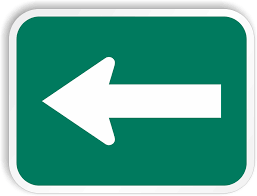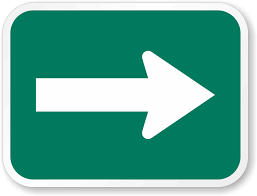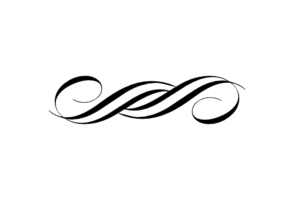 Anna
Karenina. Part 1. Chapter 25.
Anna
Karenina. Part 1. Chapter 27.
Anna
Karenina. Part 1. Chapter 25.
Anna
Karenina. Part 1. Chapter 27. 
 Anna
Karenina. Part 1. Chapter 25.
Anna
Karenina. Part 1. Chapter 27.
Anna
Karenina. Part 1. Chapter 25.
Anna
Karenina. Part 1. Chapter 27. 
Levin Konstantin leaves Moscow and goes back to the countryside. And as soon as he sees his sledge and Ignat who came to pick him up at the railway station, Levin starts feeling better, he sees and understands everything clearer. Konstantin is happy to be back, and starts thinking about changing a few things, not as radical as his brother who was talking about communism. Konstantin always had that feeling about being undeservedly privileged, while other people around him were poor and didn't have a lot. And he thinks the way to change it – to work harder and not to have luxurious – so nothing close to communism, but this decision made him happier.
He
talks to the manager of his estate; they go to check out a new calf
born from
the expensive cows Levin bought at an exhibition, then he goes to the
office
and we can see or rather presume that Konstantin is really involved in
running
his rather complex and large estate.

Утром Константин Левин выехал из Москвы и к вечеру
приехал домой. Дорогой, в вагоне, он разговаривал с соседями о
политике, о
новых железных дорогах, и, так же как в Москве, его одолевала путаница
понятий,
недовольство собой, стыд пред чем-то; но когда он вышел на своей
станции, узнал
кривого кучера Игната с поднятым воротником кафтана, когда увидал в
неярком
свете, падающем из окон станции, свои ковровые сани, своих лошадей с
подвязанными хвостами, в сбруе с кольцами и махрами, когда кучер Игнат,
еще в то
время как укладывались, рассказал ему деревенские новости, о приходе
рядчика и
о том, что отелилась Пава, – он почувствовал, что понемногу
путаница
разъясняется и стыд и недовольство собой проходят. Это он почувствовал
при
одном виде Игната и лошадей; но когда он надел привезенный ему тулуп,
сел,
закутавшись, в сани и поехал, раздумывая о предстоящих распоряжениях в
деревне
и поглядывая на пристяжную, бывшую верховою, донскую, надорванную, но
лихую
лошадь, он совершенно иначе стал понимать то, что с ним случилось. Он
чувствовал себя собой и другим не хотел быть. Он хотел теперь быть
только
лучше, чем он был прежде. Во-первых, с этого дня он решил, что не будет
больше
надеяться на необыкновенное счастье, какое ему должна была дать
женитьба, и
вследствие этого не будет так пренебрегать настоящим. Во-вторых, он уже
никогда
не позволит себе увлечься гадкою страстью, воспоминанье о которой так
мучало
его, когда он собирался сделать предложение. Потом, вспоминая брата
Николая, он
решил сам с собою, что никогда уже он не позволит себе забыть его,
будет
следить за ним и не выпустит его из виду, чтобы быть готовым на помощь,
когда
ему придется плохо. А это будет скоро, он это чувствовал. Потом и
разговор
брата о коммунизме, к которому тогда он так легко отнесся, теперь
заставил его
задуматься. Он считал переделку экономических условий вздором, но он
всегда
чувствовал несправедливость своего избытка в сравнении с бедностью
народа и
теперь решил про себя, что, для того чтобы чувствовать себя вполне
правым, он,
хотя прежде много работал и не роскошно жил, теперь будет еще больше
работать и
еще меньше будет позволять себе роскоши. И все это казалось ему так
легко
сделать над собой, что всю дорогу он провел в самых приятных мечтаниях.
С
бодрым чувством надежды на новую, лучшую жизнь он в девятом часу ночи
подъехал
к своему дому.
In
the morning Konstantin Levin left Moscow, and towards evening
he reached home. On the journey in the train he talked to his neighbors
about
politics and the new railways, and, just as in Moscow, he was overcome
by a
sense of confusion of ideas, dissatisfaction with himself, shame of
something
or other. But when he got out at his own station, when he saw his
one-eyed
coachman, Ignat, with the collar of his coat turned up; when, in the
dim light
reflected by the station fires, he saw his own sledge, his own horses
with
their tails tied up, in their harness trimmed with rings and tassels;
when the
coachman Ignat, as he put in his luggage, told him the village news,
that the
contractor had arrived, and that Pava had calved,—he felt that little
by little
the confusion was clearing up, and the shame and self-dissatisfaction
were
passing away. He felt this at the mere sight of Ignat and the horses;
but when
he had put on the sheepskin brought for him, had sat down wrapped up in
the
sledge, and had driven off pondering on the work that lay before him in
the
village, and staring at the side-horse, that had been his saddle-horse,
past
his prime now, but a spirited beast from the Don, he began to see what
had
happened to him in quite a different light. He felt himself, and did
not want
to be any one else. All he wanted now was to be better than before. In
the
first place he resolved that from that day he would give up hoping for
any
extraordinary happiness, such as marriage must have given him, and
consequently
he would not so disdain what he really had. Secondly, he would never
again let
himself give way to low passion, the memory of which had so tortured
him when
he had been making up his mind to make an offer. Then remembering his
brother
Nikolay, he resolved to himself that he would never allow himself to
forget
him, that he would follow him up, and not lose sight of him, so as to
be ready
to help when things should go ill with him. And that would be soon, he
felt.
Then, too, his brother's talk of communism, which he had treated so
lightly at
the time, now made him think. He considered a revolution in economic
conditions
nonsense. But he always felt the injustice of his own abundance in
comparison
with the poverty of the peasants, and now he determined that so as to
feel
quite in the right, though he had worked hard and lived by no means
luxuriously
before, he would now work still harder, and would allow himself even
less
luxury. And all this seemed to him so easy a conquest over himself that
he
spent the whole drive in the pleasantest daydreams. With a resolute
feeling of
hope in a new, better life, he reached home before nine o'clock at
night.
Из окон
комнаты Агафьи Михайловны, старой нянюшки, исполнявшей в его доме роль
экономки, падал свет на снег площадки пред домом. Она не спала еще.
Кузьма,
разбуженный ею, сонный и босиком выбежал на крыльцо. Легавая сука
Ласка, чуть
не сбив с ног Кузьму, выскочила тоже и визжала, терлась об его колени,
поднималась и хотела и не смела положить передние лапы ему на грудь.
– Скоро ж, батюшка, вернулись, –
сказала Агафья Михайловна.
– Соскучился, Агафья Михайловна. В
гостях хорошо, а дома лучше, – отвечал он ей и прошел в
кабинет.
The
snow of
the little quadrangle before the house was lit up by a light in the
bedroom
windows of his old nurse, Agafea Mihalovna, who performed the duties of
housekeeper in his house. She was not yet asleep. Kouzma, waked up by
her, came
sidling sleepily out onto the steps. A setter bitch, Laska, ran out
too, almost
upsetting Kouzma, and whining, turned round about Levin's knees,
jumping up and
longing, but not daring, to put her forepaws on his chest.
"You're
soon back again, sir," said Agafea Mihalovna.
"I
got
tired of it, Agafea Mihalovna. With friends, one is well; but at home,
one is
better," he answered, and went into his study.
Кабинет медленно осветился
внесенной свечой. Выступили знакомые подробности: оленьи рога, полки с
книгами,
зеркало печи с отдушником, который давно надо было починить, отцовский
диван,
большой стол, на столе открытая книга, сломанная пепельница, тетрадь с
его
почерком. Когда он увидал все это, на него нашло на минуту сомнение в
возможности устроить ту новую жизнь, о которой он мечтал дорогой. Все
эти следы
его жизни как будто охватили его и говорили ему: «Нет, ты не уйдешь от
нас и не
будешь другим, а будешь такой же, каков был: с сомнениями, вечным
недовольством
собой, напрасными попытками исправления и падениями и вечным ожиданием
счастья,
которое не далось и невозможно тебе».
The
study
was slowly lit up as the candle was brought in. The familiar details
came out:
the stag's horns, the bookshelves, the looking-glass, the stove with
its
ventilator, which had long wanted mending, his father's sofa, a large
table, on
the table an open book, a broken ash tray, a manuscript book with his
handwriting. As he saw all this, there came over him for an instant a
doubt of
the possibility of arranging the new life, of which he had been
dreaming on the
road. All these traces of his life seemed to clutch him, and to say to
him:
"No, you're not going to get away from us, and you're not going to be
different, but you're going to be the same as you've always been; with
doubts,
everlasting dissatisfaction with yourself, vain efforts to amend, and
falls,
and everlasting expectation, of a happiness which you won't get, and
which
isn't possible for you."
Но это говорили его вещи, другой
же голос в душе говорил, что не надо подчиняться прошедшему и что с
собой
сделать все возможно. И, слушаясь этого голоса, он подошел к углу, где
у него
стояли две пудовые гири, и стал гимнастически поднимать их, стараясь
привести
себя в состояние бодрости. За дверью заскрипели шаги. Он поспешно
поставил гири.
This
the
things said to him, but another voice in his heart was telling him that
he must
not fall under the sway of the past, and that one can do anything with
oneself.
And hearing that voice, he went into the corner where stood his two
heavy
dumbbells, and began brandishing them like a gymnast, trying to restore
his
confident temper. There was a creak of steps at the door. He hastily
put down
the dumbbells.
Вошел
приказчик и сказал, что все, слава Богу, благополучно, но сообщил, что
греча в
новой сушилке подгорела. Известие это раздражило Левина. Новая сушилка
была
выстроена и частью придумана Левиным. Приказчик был всегда против этой
сушилки
и теперь со скрытым торжеством объявлял, что греча подгорела. Левин же
был
твердо убежден, что если она подгорела, то потому только, что не были
приняты
те меры, о которых он сотни раз приказывал. Ему стало досадно, и он
сделал
выговор приказчику. Но было одно важное и радостное событие: отелилась
Пава,
лучшая, дорогая, купленная с выставки корова.
– Кузьма, дай тулуп. А вы велите-ка взять фонарь, я
пойду
взгляну, – сказал он
приказчику.
The
bailiff came in, and said everything, thank God, was doing
well; but informed him that the buckwheat in the new drying machine had
been a
little scorched. This piece of news irritated Levin. The new drying
machine had
been constructed and partly invented by Levin. The bailiff had always
been
against the drying machine, and now it was with suppressed triumph that
he
announced that the buckwheat had been scorched. Levin was firmly
convinced that
if the buckwheat had been scorched, it was only because the precautions
had not
been taken, for which he had hundreds of times given orders. He was
annoyed,
and reprimanded the bailiff. But there had been an important and joyful
event:
Pava, his best cow, an expensive beast, bought at a show, had calved.
"Kouzma,
give me my sheepskin. And you tell them to take a lantern. I'll come
and look
at her," he said to the bailiff.
Скотная для
дорогих коров была сейчас за домом. Пройдя через двор мимо сугроба у
сирени, он
подошел к скотной. Пахнуло навозным теплым паром, когда отворилась
примерзшая
дверь, и коровы, удивленные непривычным светом фонаря, зашевелились на
свежей
соломе. Мелькнула гладкая черно-пегая широкая спина голландки. Беркут,
бык,
лежал с своим кольцом в губе и хотел было встать, но раздумал и только
пыхнул
раза два, когда проходили мимо. Красная красавица, громадная, как
гиппопотам,
Пава, повернувшись задом, заслоняла от входивших теленка и обнюхивала
его.
The
cowhouse for the more valuable cows was just behind the
house. Walking across the yard, passing a snowdrift by the lilac tree,
he went
into the cowhouse. There was the warm, steamy smell of dung when the
frozen
door was opened, and the cows, astonished at the unfamiliar light of
the
lantern, stirred on the fresh straw. He caught a glimpse of the broad,
smooth,
black and piebald back of Hollandka. Berkoot, the bull, was lying down
with his
ring in his lip, and seemed about to get up, but thought better of it,
and only
gave two snorts as they passed by him. Pava, a perfect beauty, huge as
a
hippopotamus, with her back turned to them, prevented their seeing the
calf, as
she sniffed her all over.
Левин вошел в
денник, оглядел Паву и поднял красно-пегого теленка на его шаткие
длинные ноги.
Взволнованная Пава замычала было, но успокоилась, когда Левин подвинул
к ней
телку, и, тяжело вздохнув, стала лизать ее шершавым языком. Телка,
отыскивая,
подталкивала носом под пах свою мать и крутила хвостиком.
Levin
went into the pen, looked Pava over, and lifted the red
and spotted calf onto her long, tottering legs. Pava, uneasy, began
lowing, but
when Levin put the calf close to her she was soothed, and, sighing
heavily,
began licking her with her rough tongue. The calf, fumbling, poked her
nose
under her mother's udder, and stiffened her tail out straight.
– Да сюда
посвети, Федор, сюда фонарь, – говорил
Левин, оглядывая телку. – В мать!
Даром что мастью в отца. Очень хороша. Длинна и пашиста. Василий
Федорович,
ведь хороша? – обращался
он к приказчику, совершенно примирившись с ним за гречу под влиянием
радости за
телку.
"Here,
bring the light, Fyodor, this way," said Levin,
examining the calf. "Like the mother! though the color takes after the
father; but that's nothing. Very good. Long and broad in the haunch.
Vassily
Fedorovitch, isn't she splendid?" he said to the bailiff, quite
forgiving
him for the buckwheat under the influence of his delight in the calf.
– В кого же
дурной быть? А Семен рядчик на другой день вашего отъезда пришел. Надо
будет
порядиться с ним, Константин Дмитрич, – сказал приказчик. – Я вам прежде докладывал про машину.
Один этот вопрос ввел Левина во все
подробности хозяйства, которое было большое и сложное, и он прямо из
коровника
пошел в контору и, поговорив с приказчиком и с Семеном рядчиком,
вернулся домой
и прямо прошел наверх в гостиную.
"How
could she fail to be? Oh, Semyon the contractor came
the day after you left. You must settle with him, Konstantin
Dmitrievitch," said the bailiff. "I did inform you about the
machine."
This
question
was enough to take Levin back to all the details of his work on the
estate,
which was on a large scale, and complicated. He went straight from the
cowhouse
to the counting house, and after a little conversation with the bailiff
and
Semyon the contractor, he went back to the house and straight upstairs
to the
drawing room.

 Anna
Karenina. Part 1. Chapter 25.
Anna
Karenina. Part 1. Chapter 27.
Anna
Karenina. Part 1. Chapter 25.
Anna
Karenina. Part 1. Chapter 27. 